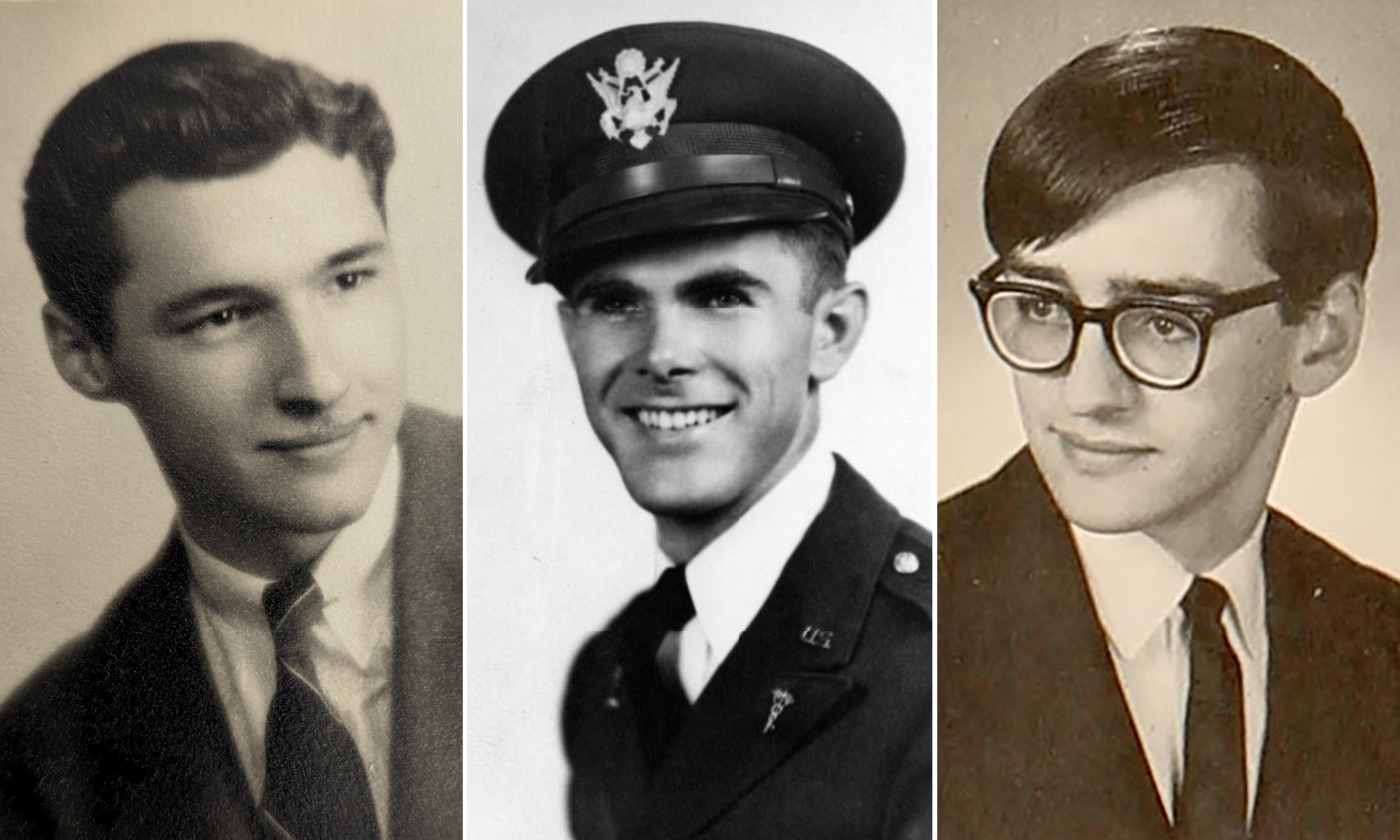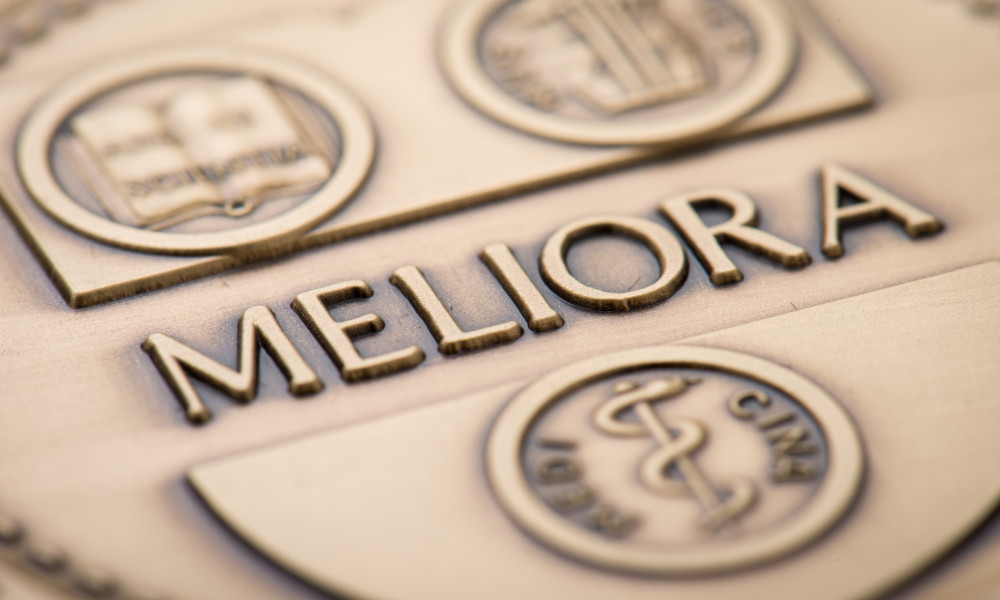Four doctoral candidates will research in archives in a dozen countries.
Four University of Rochester graduate students—Jeffrey Baron, Bridget Fleming, Elif Karakaya, and Christian de Mouilpied Sancto—are inaugural recipients of Meliora Global Scholars grants. Offered by the Humanities Center, the grants provide doctoral candidates an opportunity to conduct thesis research in archives and communities abroad.
Available to doctoral students in English, history, philosophy, and visual and cultural studies, the awards of $3,000 to $8,000 are intended to help scholars explore “the interconnected nature of our world, from climate and natural resources to trade and intellectual exchange, in the past as in the present.” The awards also stress the importance of accessing primary and unpublished source material as the “foundation of building new knowledge and promoting epistemic fidelity in the humanities.”
Peter Christensen, the Ani & Mark Gabrellian Director of the Humanities Center, says he is “thrilled” to announce the recipients. “Between the four of them, they will be covering Europe from east to west, conducting research in Turkey, Bosnia and Herzegovina, Germany, the Netherlands, France, Spain, and the United Kingdom.”
For example, Baron, a PhD candidate in the Department of History, will conduct research at several archives in Spain to support his dissertation examining Spanish treasure law as it transformed around 1492.
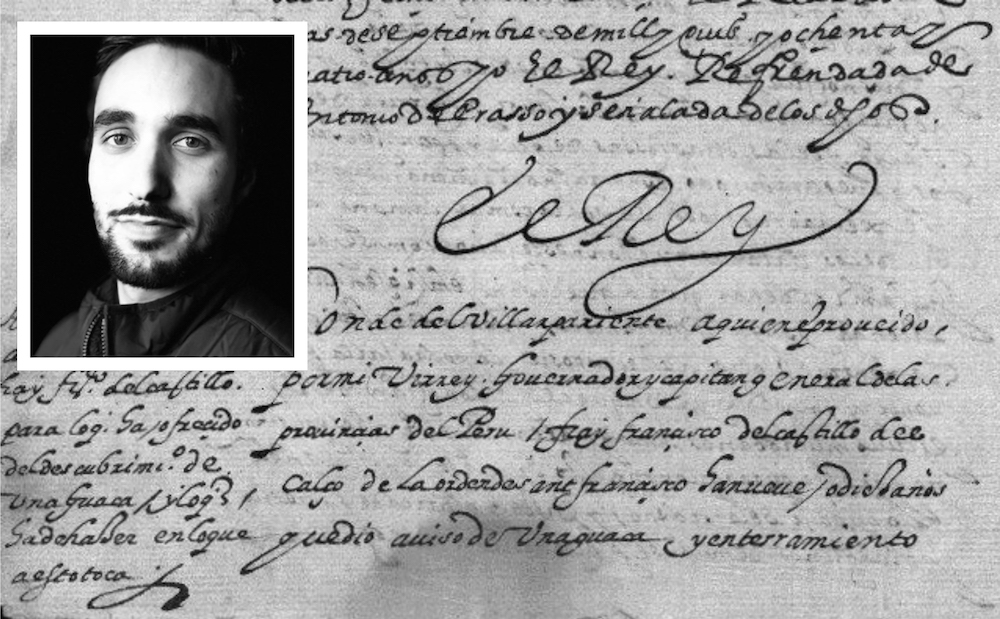
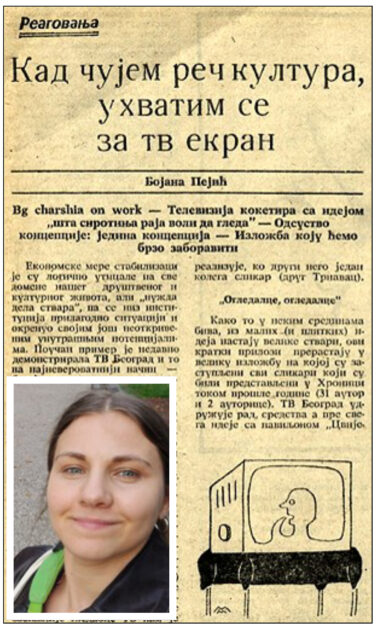
“The legality of treasure excavations both before and after 1492 has left a rich documentary heritage that can provide insights into mechanisms of Spanish bureaucracy that fostered the dismantling of much of the archaeological landscape of both Iberia and pre-Columbian Latin America,” Baron writes in his prospectus. He anticipates the documents will help support his working argument that, “rather than a reckless gold frenzy, the Spanish search for wealth in colonial Latin America was overseen by a careful and deliberate process of licensing and legal authorization that evolved out of medieval treasure-hunting practices,” Baron writes.
Fleming, Karakaya, and Sancto are each PhD students in the Graduate Program in Visual and Cultural Studies (VCS).
Fleming studies women’s artistic and curatorial practices in art collectives in the former Yugoslavia during the postwar era. Her current research focuses on the Student Cultural Center (SKC), a collective that formed in 1968 in Belgrade, in present-day Serbia, as a result of the local student protest movement.
She will visit museums and archives and conduct interviews in Slovenia, Serbia, Croatia, and Italy to better understand the “kinds of political agency that were both afforded and denied women as a result of working in a predominately male collective,” Fleming writes.
She wants to understand why female leadership at SKC left the center to work for public television in 1980, whether television was a more effective platform for expressing political agency in the public sphere, and what this contrast suggests about “art’s shifting role in Yugoslavia, especially given its unique brand of socialism.”
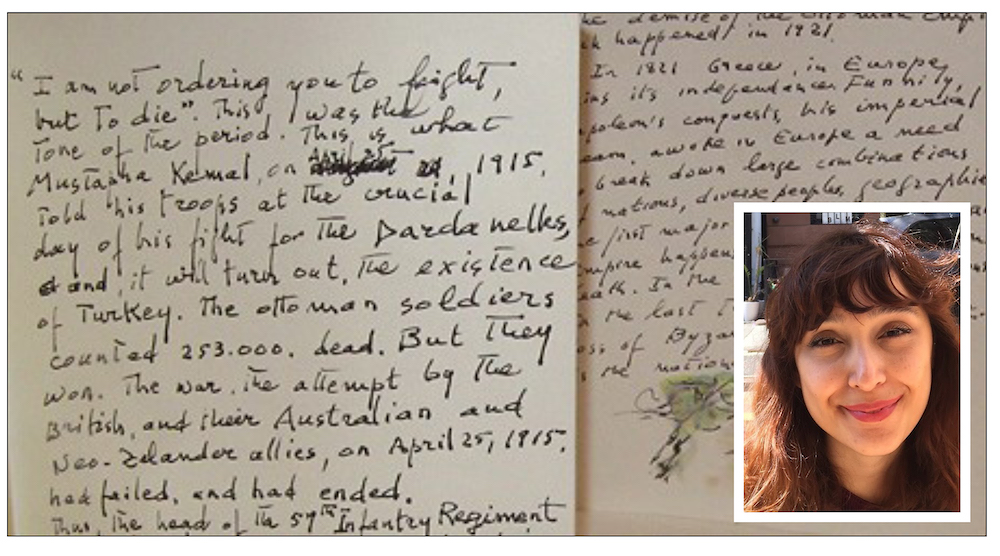
Karakaya examines the displacement of the Arab, Greek, and Armenian communities that accompanied the fall of the Ottoman Empire at the end of the First World War, and the legacy of that displacement up to today. Her research focuses on “how these immigrants and their second- and third-generation descendants remember and memorialize their former homelands,” Karakaya writes.
She will examine photography collections, books, manuscripts, maps, and sketches, as well as interview artists or their acquaintances in France, Germany, and Greece to study the varied representation of former Ottoman towns in different visual regimes.
Sancto studies the history of environmental sound media in the late 20th and early 21st centuries. He is particularly interested in how technological inventions like omnidirectional microphones, artistic movements like Fluxus, new interdisciplinary concepts like soundscape, and a “burgeoning awareness of environmental degradation instigated new kinds of global dialogue among artists, musicians, scientists, and policymakers.”
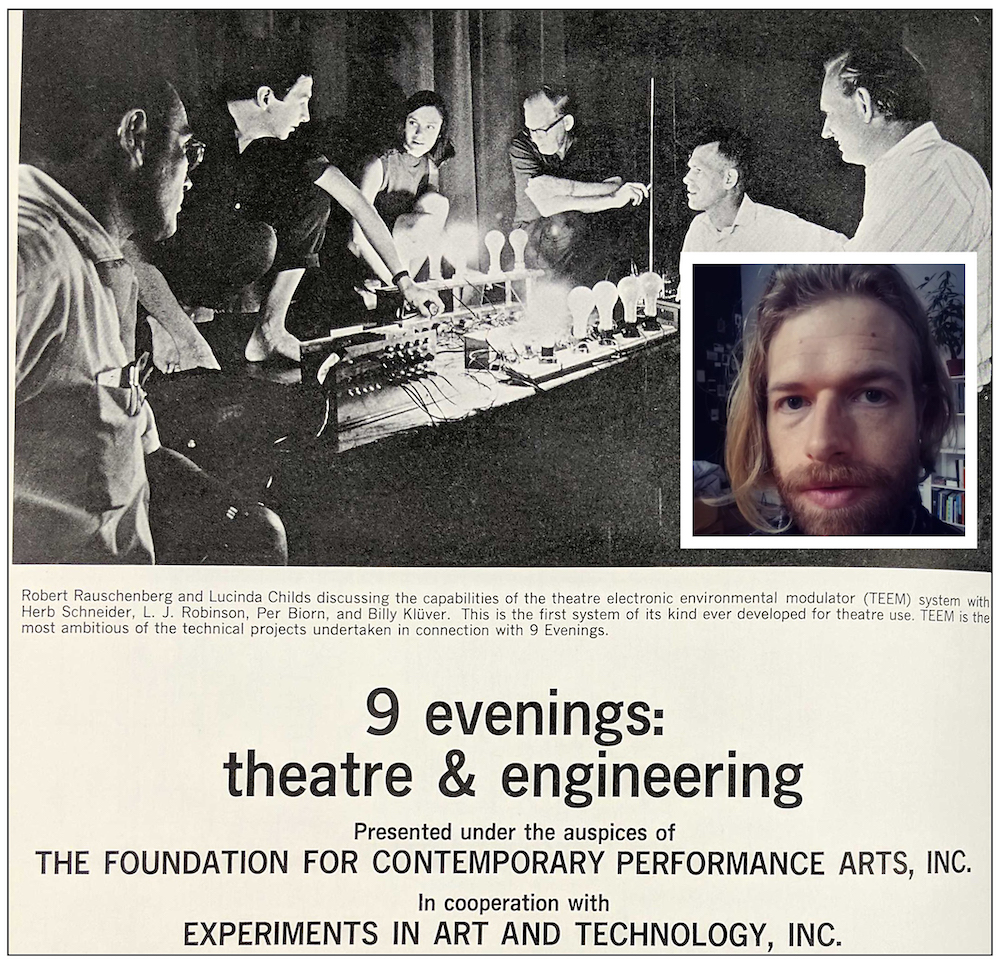
He will visit France, Germany, Lithuania, England, Canada, and South Korea to consult printed texts, artworks, musical scores, correspondence, ephemera, and sound recordings.
Read more
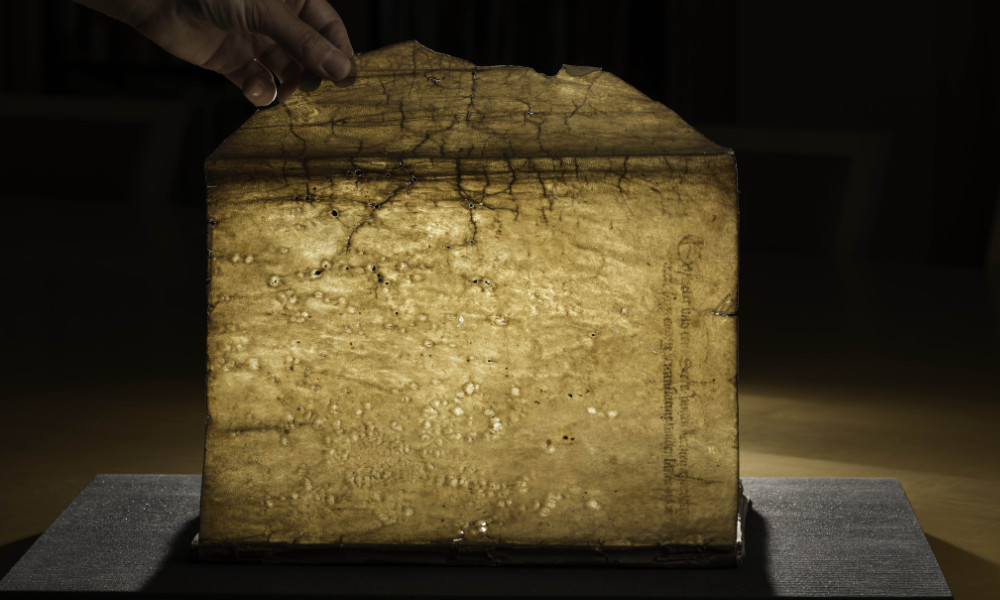 Wormholes and stains add to backstory of medieval manuscript’s acquisition
Wormholes and stains add to backstory of medieval manuscript’s acquisition
The 700-year-old manuscript is the first in a new University of Rochester library collection that honors historian Richard Kaeuper.
 Funded internships open doors to graduate schools, career paths, and personal growth
Funded internships open doors to graduate schools, career paths, and personal growth
With University and donor funding providing a “financial bridge,” equitable access to internships helps Rochester students preview their futures.
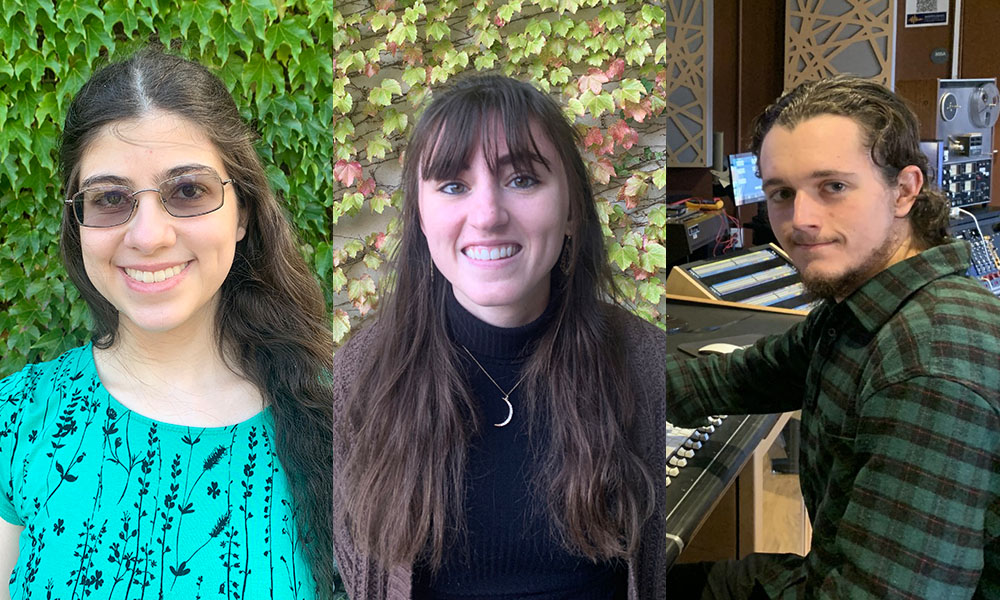 These students thrive where STEM, humanities intersect
These students thrive where STEM, humanities intersect
The Wells Award recognizes engineering students who excel in humanistic disciplines.


